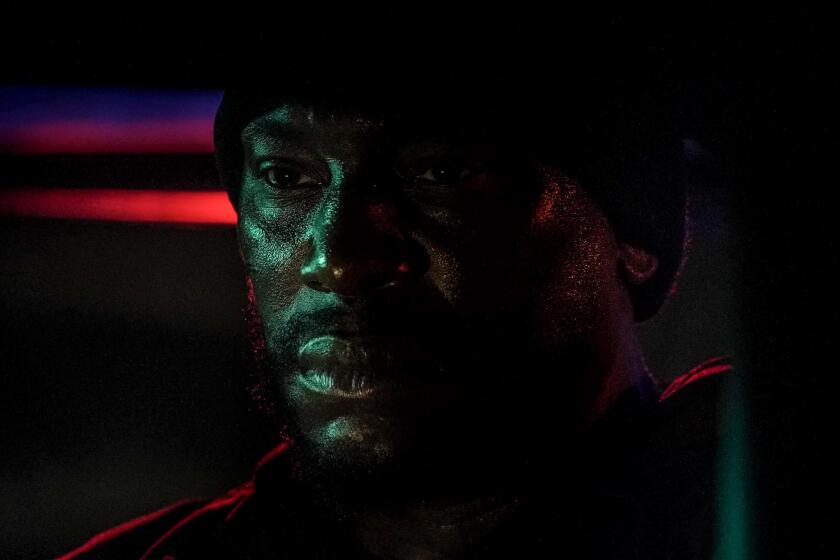Yoo-hoo, Hollywood. Come make your movie over here
If Amra Baksic-Camo is going to make it in Hollywood, she’s going to have to work on her pitch.
The promoter is at the Cannes Film Festival trying to woo Hollywood to come make movies in the Balkans -- you know, Slovenia, Serbia, Bosnia and Herzegovina and other countries formed after the breakup of the former Yugoslavia. With so many U.S. productions going overseas, she and other executives have set up shop along a breezy stretch of sand here off the Croisette to showcase their countries as exotic locales for film shoots.
After touting the region’s architecture, the terrain, the friendly people -- and glossing over the region’s continuing political unrest -- she offers these truths about Bosnia and Herzegovina: “We have bad roads, we have small airports. We are a poor country.” There aren’t any tax incentives. And the nearest film processing lab is a six-hour drive to Zagreb.
Down the way is the Slovenia film office, where Natasha Bucar is explaining why Hollywood might want to film there.
“It’s located between Austria, Italy and Croatia,” she said, and as a result can offer a variety of stunning views: “It has very high mountains, the Alps, and then we have the Mediterranean Sea. A location scout from America said the best place to come is Slovenia.”
The biggest problem, she notes, is that most people, especially geographically challenged Americans, don’t have a clue where Slovenia is.
“People don’t know about it.... My personal opinion is that Slovenia has done a very bad job internationally promoting itself ... everybody mixes it up with Slovakia.”
Sharing an office here with Bucar is Antonia D. Carnerud, a senior advisor to the Ministry of Culture in Croatia, who pointed out other attractive features of her country: “You have a rather small country, but you have the possibility of filming at the coast, say the seaside; you have a lot of islands, so you have kind of a very Mediterranean atmosphere. In terms of architecture on the coast, you have big medieval towns like Dubrovnik, and up to the north you have more Austro-Hungarian influence....”
All that said, she conceded that she doesn’t see the Balkans as terribly competitive when it comes to luring filmmakers. “Each country has its own advantages, and, let’s say, its own problems. I think there is a space for everybody, and the important thing is that there are good films done.”
George Milicevic, director of Film Center Serbia and a former longtime Los Angeles resident, mans the Serbia film office at Cannes. He is convinced that the Balkans will soon be hot: “The bottom line is: We’re the next destination [for filmmakers] in Europe. There is know-how, there is the money. Meaning our services are still cheaper.”
Milicevic says the biggest hurdle to luring Hollywood to Serbia is convincing filmmakers that it’s safe in the wake of the regional breakup. Hollywood also has misgivings about shooting in an area where leaders have been accused of committing war crimes, but the region’s rich history may outweigh that.
“Serbs are a very interesting people because they participated in all the major events in Europe historically [from] the end of the Ottoman Empire. Unfortunately ... they got involved in what we call ‘the civil war of separation.’ ”
He said when he told his friends back in Los Angeles that he was returning to Serbia, “they said, ‘You’re nuts!’ because they are not informed.” He says that the conflict hasn’t been completely forgotten, but life there has moved on. “If you went there now, you would not know what we went through except when you see the buildings that are torn down.”
He said that long before the war, the land now known as Serbia played host to foreign film productions, such as “Kelly’s Heroes,” “The Long Ships” and “Castle Keep.”
Now Serbia is once again waiting with open arms, he said: “We have opened the door and said ‘We’re back.’ ”
More to Read
Only good movies
Get the Indie Focus newsletter, Mark Olsen's weekly guide to the world of cinema.
You may occasionally receive promotional content from the Los Angeles Times.









